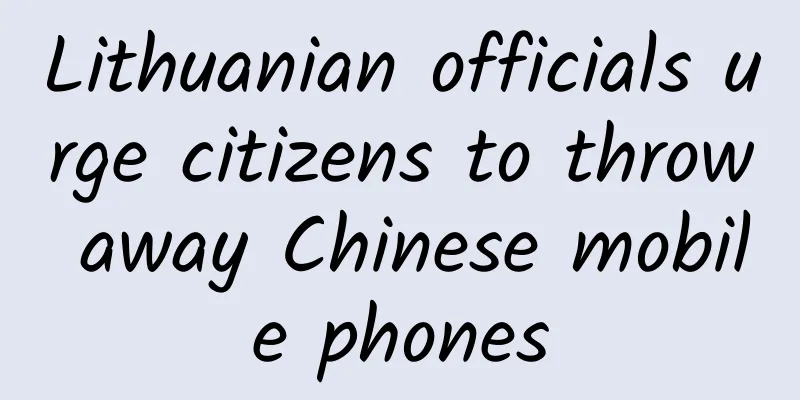Why can’t Zhou Hongyi forget about search?

|
2015 was still a high-profile year for Zhou Hongyi. But unlike previous years, the label associated with Zhou Hongyi this year was not search, but mobile phones. Has Zhou Hongyi forgotten about search? Actually, it is not the case. People who really know Zhou Hongyi and 360 know it well - search is Zhou's biggest problem, so how can he forget it? So, we saw that just after the beginning of 2015, on the early morning of February 2, 360's search brand "Haosou" officially switched back to "360 Search", and the domain name was switched from the previous "haosou.com" to "so.com", and the gap was only one year. At the press conference, Lao Zhou explained, "Haosou's switch back to 360 Search is an important move by 360 to continue to spread and extend the concept of security. It also means that 360 Search will continue to rely on the foundation of the 360 parent brand and continue to form differentiated advantages in terms of security and trustworthiness." However, a year ago, when the original 360 Search was renamed Haosou, 360 President Qi Xiangdong said in an internal email to employees, "The 360 search experience has improved rapidly in terms of accuracy, richness, and security. The experience is not inferior to that of competitors, and in some aspects it is even stronger than competitors. In this case, our only weakness is the brand. The previous 360 Search was strictly a business name, not a brand name." Obviously, by comparison, we can find that the "return" of 360 Search is, in a sense, the "return of failure" of Zhou Hongyi and 360 - a year ago, he said that "security has been rapidly improved, and the only weakness is the brand", but a year later, he said that he would "continue to form differentiated advantages in terms of security, trustworthiness, etc." If I understand correctly, it probably means that the brand of Haosou has not been established this year, and it will continue to return to its traditional advantages and retreat to the fortress. Of course, the above discussion may sound "harsh". In fact, the "return" of 360 Search is a good thing and a correct strategic choice. However, what it reveals is nothing more than Zhou Hongyi's entanglement and unwillingness with the current 360 Search, as well as the well-known "unparalleled passionate love". Four War Search For Lao Zhou, 360 search is his fourth search engine. In October 1998, Zhou Hongyi founded Guofeng Internet Software Co., Ltd., and the website was named 3721 - no matter 3721, you can find what you want - users do not need to remember complicated domain names, they can directly enter the Chinese name in the browser address bar to go directly to the company website or find company and product information. This was the first time that Zhou Hongyi provided a search-like service, and it was also the most appropriate time at that time. At that time, users preferred to obtain Internet content and services through the address bar rather than the search box, and 3721 met this demand of users. At the same time, there were more than 100,000 3721 agents across China, selling 3721 Chinese real-name services. This "people's war" style of promotion was enough to make 3721 rise rapidly. Thus, by 2002, 3721 had become the leading leader in China's search industry in terms of both traffic and revenue. In that year, 3721's sales reached 200 million yuan, with a gross profit of 60 million yuan, and it was the talk of the town (at that time, Ma Huateng, who was struggling with business, almost sold the QQ software to others for 600,000 yuan). However, 3721's competitors were also making efforts at that time, namely Baidu , which was founded at about the same time as 3721. Then the famous "plug-in war" broke out - at a height of about one centimeter, many Internet companies fought each other to the point of bloodshed. Of course, the most intense struggle took place between 3721 and Baidu, because occupying this client meant traffic, customers and revenue. However, compared with the people's war-style channels, Baidu is increasingly demonstrating its technological advantages (web search), while another search giant, Google, is also beginning to knock on China's door. At this time, in 2003, Yahoo extended an olive branch to Zhou Hongyi - so 3721 was sold to Yahoo for US$120 million, giving the opportunity to Baidu and Google. Interestingly, right after Zhou Hongyi sold 3721, Google went public in the same year and became a new Internet benchmark. Zhou Hongyi suddenly realized that this was probably the decision he regretted the most. Therefore, Zhou Hongyi, then president of Yahoo China, launched the “One Search” search engine, intending to integrate 3721 Internet Real Name and Yahoo Search (YST) to become China’s Google. This was Zhou Hongyi’s second round of search. However, "due to the bureaucracy of multinational companies and the lack of trust in the Yahoo China management team at Yahoo headquarters", this strategy was delayed indefinitely until it came to nothing. In 2005, Baidu successfully went public, with a share price of over $138 that day, and the label of China's Google was attached to Baidu. The world has changed dramatically. One can imagine how Zhou Hongyi felt at that time. In 2005, Zhou Hongyi left Yahoo and joined IDC, becoming an angel investor. It was also at this time that he saw Baidu becoming more and more popular. Just imagine, with Zhou Hongyi's unyielding character, how could he easily accept this? In the same year, Qihoo was quietly established, with the goal of "image + community" search, intending to "break through in one area". However, this demand did not exist at the time, and the project was soon stopped. By this time, it was Zhou Hongyi's third search campaign. Fortunately, compared with the failure of search, the security guard with Fu Sheng as CEO emerged. So Zhou Hongyi saw another market and immediately switched to free antivirus, and had a famous 3Q war with Tencent. In March 2011, Zhou Hongyi successfully landed on the New York Stock Exchange with the determination to "persist in going public", and its market value once exceeded 10 billion US dollars. However, even so, Baidu was ranked among China's BAT at that time, with a market value of nearly 100 billion US dollars. The sharp contrast between Qihoo and Baidu made Zhou Hongyi feel unwilling. On August 15, 2012, 360 launched its integrated search engine in a low-key manner. With the market position of 360 Browser on the PC side, within a week of launching the search engine, according to Fu Sheng, CEO of Kingsoft Network, 360 Search had a market share of over 10% in just 5 days after its launch, surpassing Google and Sogou to become the second largest search engine in China. This was Zhou Hongyi's fourth battle in the search industry. It is undeniable that Zhou Hongyi gained a certain market share in this search campaign. However, this success was mainly due to the market position of the browser. Two years later, we all saw that after consuming the dividends of the browser, 360 Search did not achieve the reversal Zhou Hongyi expected - defeating Baidu. Because of this, 360 Search changes its name and strategy from time to time. Times have changed Zhou Hongyi's entanglement and reluctance about search are actually nothing more than regret for selling 3721 that year - Zhou Hongyi's 3721 and Baidu had similar market shares, and was ahead of its competitor in market channel construction. As a result, Baidu monopolized more than 70% of the domestic search market, and 3721 disappeared. According to Baidu's market value, this lesson is undoubtedly worth nearly $100 billion now. However, history has always been like this, the winners are the kings and the losers are the bandits. In the 3721 era, China's Internet had just entered a period of rapid development. The first generation of netizens had an extremely strong demand for surfing the Internet, but the slow Internet speed and complex and difficult-to-remember English URLs made netizens "unbearable". It was precisely because of this environment and market demand that Zhou Hongyi's Chinese real-name service 3721 became a great success. However, at that time, the Chinese Internet was just beginning and still in a chaotic period. Although 3721 had the first opportunity, the Chinese market was large enough for 3721 to make a breakthrough - because its only barrier was Chinese real-name service. This is indeed the case. In 2000, Robin Li founded Baidu after returning to China to start a business. Although Baidu did not have an advantage, by 2003, Baidu's traffic increased by 7 times with its relatively mature web search engine technology. Baidu's momentum of conquering cities and territories made Zhou Hongyi feel more pressured. What made him even more worried was that Google had already begun to knock on China's door. In this environment, Zhou Hongyi "happened to meet Yahoo" - Yahoo promised to provide him with search technology that rivals Google. Zhou Hongyi thought that if he could have Yahoo's funds, brand and technology, plus his own channels, clients and operational capabilities, he could not only destroy Baidu, but also Google. Of course, thinking from the perspective of hindsight, if Zhou Hongyi had chosen to develop independently at the time, restrained his ambitions, and targeted the Chinese market, perhaps he would not have chosen Yahoo and would not have missed out on the dominant position in the search field. However, there is only one chance and history cannot be repeated, no matter how hard Zhou Hongyi tries. In 2005, Baidu successfully went public. China's search landscape entered the Baidu era. At that time, the main players in China's search market were Baidu and Google. Interestingly, Robin Li knew Google better and Chinese netizens better, and he competed with Google through differentiated means - he knew Chinese better. Everyone knows the subsequent story, Google was forced to leave China. However, because of Google's departure, Baidu became increasingly powerful, to the point that it became synonymous with search in China - just Baidu it and you'll know. In fact, China's Internet can be roughly divided into three stages: from 1995 to 1999 was the Internet portal era, and portal websites were the main channel for users to obtain information. Therefore, 3721 was born at that time. But from 2000 to 2010 was the Internet search era, and the way users obtained information shifted to search engines, so Baidu could be in the limelight. From 2010 to the present, with the rise of social networking sites such as Weibo and WeChat, the Internet has begun to enter the social era, and the way of information dissemination has once again faced a huge change. One era, one opportunity, one overlord. With the general trend set, 360 Search has been able to achieve what it has today, which is actually very admirable. However, no matter what, Zhou Hongyi has obviously missed the opportunity and dominant position in the search market. Now that the times have changed, Zhou Hongyi's insistence on search can only add to his resentment and entanglement. Today, 360 is already a platform-level company, with security, search, browser, app store, mobile phone and other businesses. Search should not and cannot become 360's single breakthrough business in the future. If Zhou Hongyi wants to challenge for the top spot again in the future, the best plan now is to forget about search! As a winner of Toutiao's Qingyun Plan and Baijiahao's Bai+ Plan, the 2019 Baidu Digital Author of the Year, the Baijiahao's Most Popular Author in the Technology Field, the 2019 Sogou Technology and Culture Author, and the 2021 Baijiahao Quarterly Influential Creator, he has won many awards, including the 2013 Sohu Best Industry Media Person, the 2015 China New Media Entrepreneurship Competition Beijing Third Place, the 2015 Guangmang Experience Award, the 2015 China New Media Entrepreneurship Competition Finals Third Place, and the 2018 Baidu Dynamic Annual Powerful Celebrity. |
<<: GoPro's dilemma: competitors' pressure and slow content monetization
>>: Do you still remember the year 2006 when people sent New Year greetings via text messages?
Recommend
Where is Cordyceps sinensis produced? Which province is Cordyceps sinensis mainly produced in?
We all find the growth of Cordyceps very magical....
Are peanuts harmful or beneficial? How to eat them more healthily?
Peanuts are not unfamiliar to us. They are also k...
Resources|The most complete H5 sound effects library material website recommendation
When it comes to H5-related sound effects, many p...
Exclusive ranking of “Werewolf Killing” App: Can “killing each other through the air” become the next Kuaishou?
"I still don't understand what Werewolf ...
What are the functions and advantages of developing Dongcheng’s self-service ordering app?
With the development of mobile Internet, many res...
Liaoyang Mini Program Agency Company, how much does it cost to be an agent for a parent-child mini program?
Liaoyang parent-child mini program agents are gen...
180 courses on in-depth practice of short videos on Douyin
Course Overview This is a set of in-depth practic...
WeChat cancels the two-minute deletion function! The crash scene that 99% of people have experienced is finally saved
I wanted to withdraw it, but accidentally pressed...
Short video live streaming is not very effective in selling products. Is it useful to insist on publishing works?
The total number of active users on Kuaishou and ...
A thin layer is warmer than down? Is aerogel cold-resistant clothing a waste of money?
Winter is here, the temperature has dropped sharp...
User Operation: How to correctly design a paid membership system?
In the past month, I have had some exchanges and ...
You can’t tear it off, and you can’t eat it. What are the stickers on fruits used for?
Many people are used to peeling the stickers off ...
Tmall Super Brand Day: A marketing revolution that turns joint marketing into IP
Recently, I was impressed by Tmall’s “coolness” a...
Foreign media: Mechanical hard drives are not dead, ultra-high capacity products are their future
According to foreign media reports, Nidec Corpora...
How to create and attract traffic for “TikTok Startup Account” short videos?
This issue shares an article about how to attract...




![[Case] With the right copywriting, CTR increased 6.3 times!](/upload/images/67cc2d82a3db2.webp)




